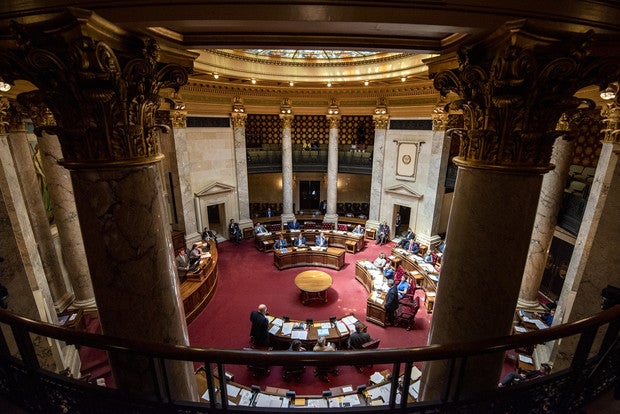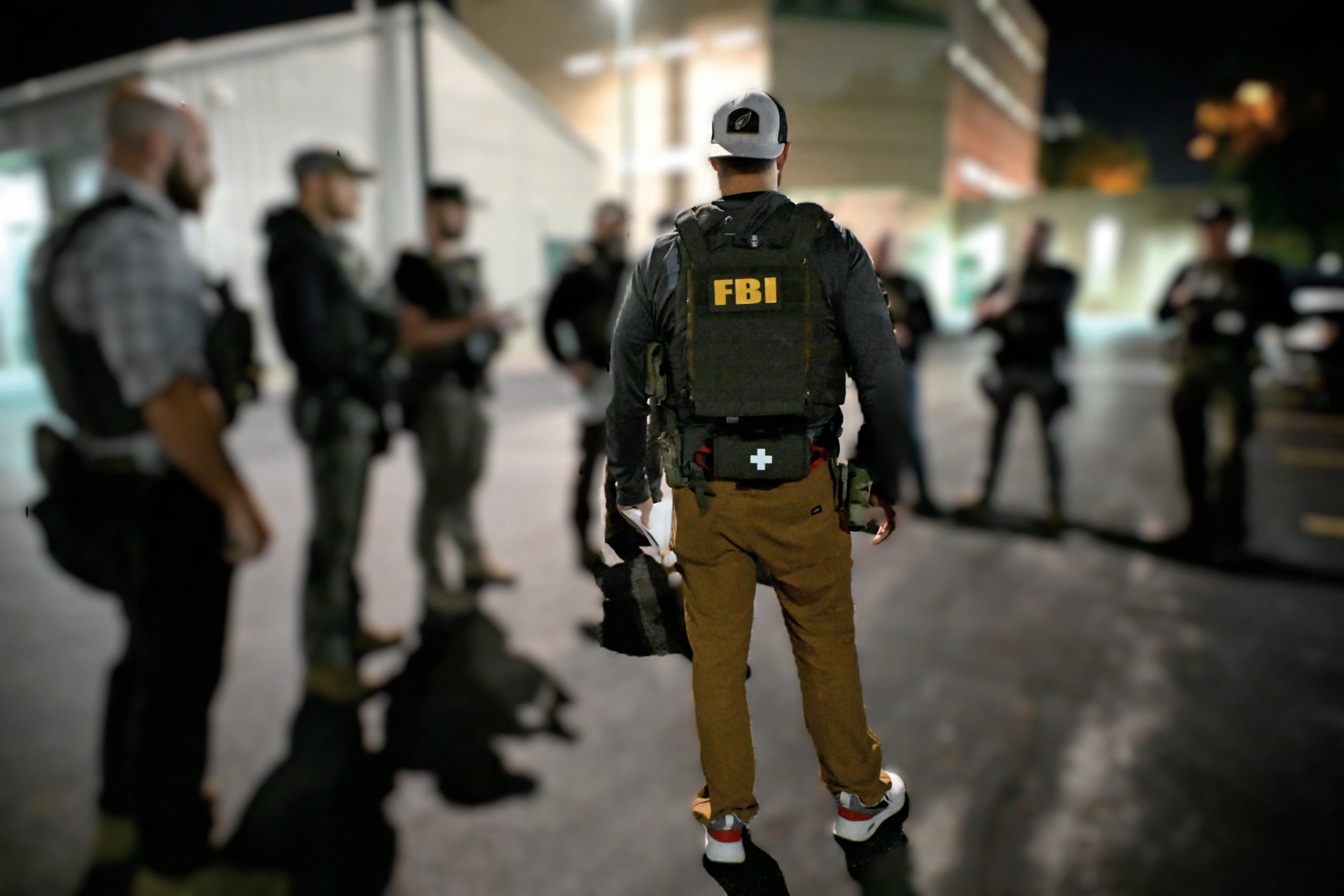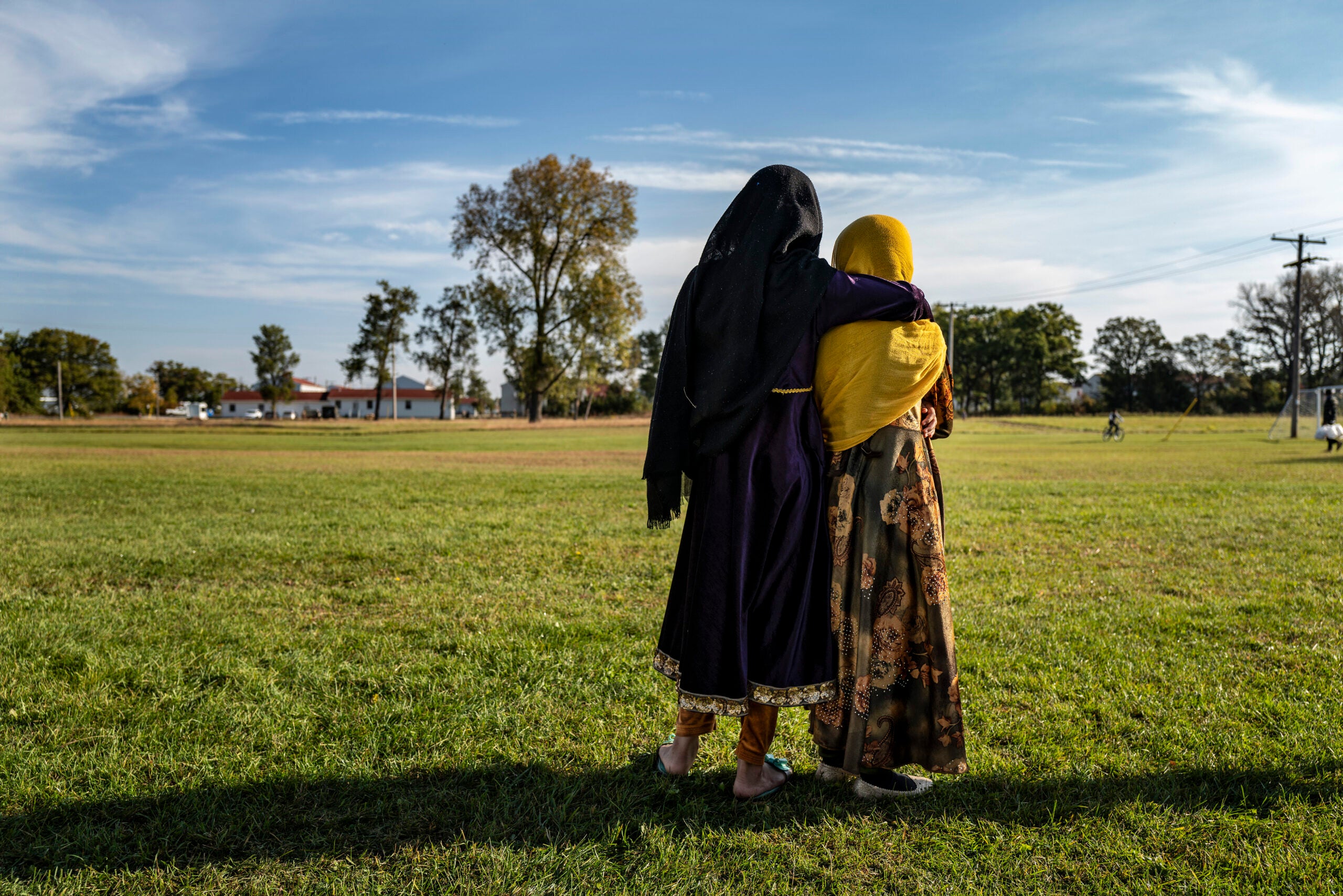Bipartisan lawmakers are closer to getting enough support to pass a bill that would allow residents enrolled in the Deferred Action for Childhood Arrivals program to become law enforcement officers in the state.
This is the second time the bill has been proposed and would impact thousands of Wisconsinites, said bill co-author state Sen. Jesse James, R-Altoona. James and other advocates for the bill’s passing believe it would help address what he said are the lowest numbers in decades for recruiting and retaining new officers.
DACA recipients can become state troopers, game wardens, corrections officers and serve in the National Guard. But state law excludes them from serving as police officers. James’ bill would let a sheriff or local law enforcement official appoint a DACA recipient to work in their local department.
News with a little more humanity
WPR’s “Wisconsin Today” newsletter keeps you connected to the state you love without feeling overwhelmed. No paywall. No agenda. No corporate filter.
In continuing to voice support for the legislation, James spoke with Wisconsin Public Radio’s “Route 51” about where the bill stands, how DACA recipients could help fill other employment gaps in industries that need workers and how they could help strengthen the link between communities and law enforcement, specifically by addressing language barriers.
This interview has been edited for clarity and brevity.
Shereen Siewert: In some cases, DACA recipients are bilingual. Not always, of course, but what kind of benefit would you see for having bilingual officers on staff?
Sen. Jesse James: Well, that’s a huge advantage. I mean, there are times where I was able to help translate Spanish in my law enforcement capacity when I worked in Altoona. I was called out to scenes to help communicate and translate as far as what had happened on incidents.
We need more individuals like this in having that dual language, whether it’s Spanish or the Hmong language. It’s a huge, valuable benefit to any agency across the state.
SS: Do you feel like you’re getting more support, that the bill might be gaining a little more traction?
JJ: Well, we have kind of a rule of 17 in the Senate in the majority, and I am currently two short away from achieving that goal. So it’s not dead yet. I’m working diligently trying to go direct with the senators that may not support this because the mindset of these individuals being here — they call them illegal aliens, or illegal immigrants, whatever you want to call them — we’re trying to help change that narrative, but there’s just some that are very stubborn-minded and not willing to see it a different way.
SS: What other kinds of arguments do you hear against this bill besides the pushback against the legal status? Or is that the crux of it?
JJ: That’s the crux of it.
(Opponents of the bill) ask if (the DACA recipients) can vote. We tell them no. They say that (if) they can’t vote, they shouldn’t be able to do the other things — they are here illegally.
And I try to counter that with the amount of vetting that goes into these individuals, that the requirements they have to do for the rest of their life if they’re going to remain in our state — to go and get vetted at the Homeland Security office in Milwaukee, the amount that they pay and the information and the records and documentation that they have to produce — they’re more vetted than even some of our own officers are that are currently working in the state.
SS: And what’s the response then, when you present these arguments?
JJ: There’s just no change of attitude or mindset. It’s like it goes in one ear and out the other and I don’t think they’re really listening. They may hear what I’m saying, but I don’t think they’re truly listening to the true requirements that these individuals have to do the rest of their life.
SS: Personally, what do you think it’s going to take? What do you think has to happen for this mindset to change?
JJ: I think education and actually just professionally communicating with people. I’m not going to be one that I’m going to be yelling, screaming, using profanity. I want to just have a dialogue and conversation. I might have to do this one-on-one with each of the senators that are choosing not to support this legislation at this time.
And then just see if I can sway them. And if I can get those two more votes, it’ll be on the floor in the Senate in the fall and hopefully we can get it through by the end of the year.
SS: Democratic state Rep. Sylvia Ortiz-Velez from Milwaukee told WPR that opening up access to this new untapped pool of candidates could even improve department community relations. Do you share that view? Do you see any merit to that argument?
JJ: One hundred percent. Any time that we can bring diversity into our local law enforcement agencies and you bring a unique perspective from another person that’s having to live life a different way than we do, I think it’s a win-win for our communities. And (I have a) very community-oriented policing mindset, and I think that’s what will help our communities as we move forward in the state addressing these law enforcement shortages.
SS: When you think about DACA recipients and the state’s workforce — do you see other opportunities for DACA recipients to bolster the state’s workforce when there are shortages?
JJ: Well, I don’t see why we wouldn’t open up those opportunities. They can’t become licensed nurses, they can’t become social workers. They can’t become other professions that require licenses.
So, I think there’s opportunity to where we can change things because they’re obviously dedicated, they’re community members, they’re paying other taxes that we all pay. They’re contributing members of our communities, and some of them are even very actively involved, even becoming council persons and stuff like that. So I think there’s opportunity here that we’re missing out on.
SS: What are you hearing from your constituents about this?
JJ: People in our rural areas up here in west central Wisconsin, they’re commonsense, logical people, and they just want to do what’s right for their community. They want to do what’s right for the people. Like I said, these people are members of our communities.
We have dialogue, we have conversations, we have get-togethers, And I think that they are 100 percent in support of this. They like the ideas, and the mindset is, ‘Why not? What is the problem here?’ And obviously it’s the stubborn-headed politicians in Madison that don’t have that open-mindedness and the willingness to at least negotiate and compromise. It’s just an adamant ‘no.’
And, you know, it’s our jobs to try and address this and change our mindset and viewpoints and say, ‘Listen, our law enforcement support this. There’s other organizations that support this — why not?’
If they’re the ones that are going to be impacted by this, why not let them have this opportunity so that we can potentially increase the levels of law enforcement officers that we have in the state?
SS: As a police officer and as a representative in Wisconsin government, personally, do you have hope for this?
JJ: I believe so. And like I said, this legislation isn’t dead yet. We have till the end of the year to get a push through. My conversations are not over.
I just think that we’re missing out on an opportunity at the local level.
Wisconsin Public Radio, © Copyright 2026, Board of Regents of the University of Wisconsin System and Wisconsin Educational Communications Board.







